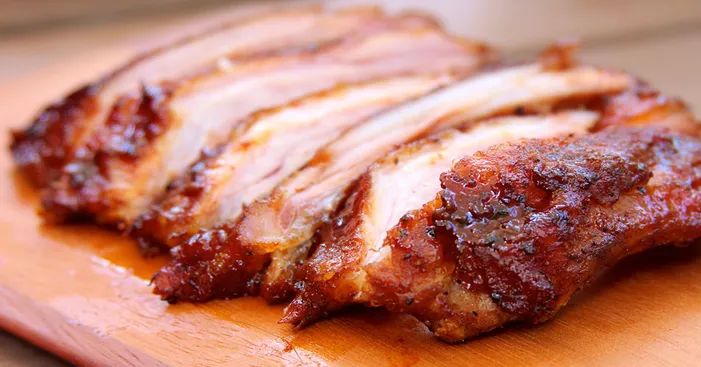Table of Contents
When you think of alligator meat, you probably think of something scary, dangerous, and maybe even a little bit gross.
But what if I told you that alligator meat is actually one of the healthiest and most sustainable meats on the planet?
That’s right, alligator meat is packed with protein, low in fat, and has a neutral flavor that makes it perfect for a variety of dishes.
It’s also a great source of omega-3 fatty acids, which are beneficial for heart health.
We’ll also share some recipes for delicious alligator dishes that you can try at home.
So read on to learn more about the healthy, sustainable meat of the future!
General facts about alligator meat:
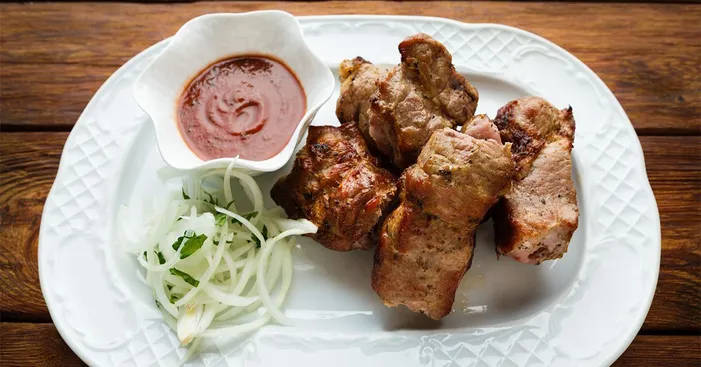
Historical overview:
Alligators and alligators are closely related, and their meat is also similar in taste and texture.
The only major difference is that alligator meat has a lower sodium content.
The earliest record of humans eating alligator meat dates back to the Ming Dynasty in China.
During this time, alligator meat was considered a delicacy and was often served at wedding banquets.
There are currently two extinct species of alligator: the American alligator and the Chinese alligator.
However, there are still many alligator farms in the United States that raise alligators for their meat.
This meat is available in specialty stores and some grocery stores.
If you’re looking for unique and flavorful meat to try, the alligator is a great option.
It’s low in sodium and high in protein, making it a healthy choice.
Also with its mild flavor, alligator meat can be cooked in a variety of dishes.
Difference between crocodiles and alligators:

Alligators and crocodiles are often confused with each other, as they are very similar in appearance.
Both animals are large, scaled reptiles with long snouts and powerful jaws.
However, there are some key differences between the two species.
One of the most obvious differences is the shape of the snout.
Alligators have a broad, U-shaped snout, while crocodiles have a longer, V-shaped snout.
This difference in snout shape is related to the different diets of the two animals.
Alligators typically eat fish, turtles, and small mammals, while crocodiles eat a wider variety of prey, including large mammals, birds, and even other crocodiles.
Another difference between alligators and crocodiles is their distribution.
Alligators are found in North America, while crocodiles are found in Africa, Asia, and Australia.
Nutritionally, alligator and crocodile meat are very similar.
Both types of meat are low in fat and high in protein.
However, crocodile meat does have a slightly higher sodium content than alligator meat.
This difference is likely because crocodiles typically live in saltwater habitats, where the sodium content is higher.
Overall, the differences between alligator and crocodile meat are minor.
In most cases, you would not be able to tell the difference between the two meats if they were prepared the same way.
However, if you are sensitive to sodium, you may want to choose alligator meat over crocodile meat.
Alligator meat nutritional values and health benefits:
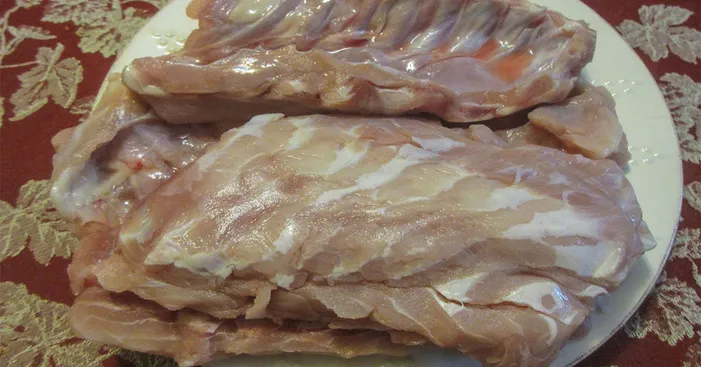
Nutritional values:
Alligator meat is a lean, high-protein meat that is lower in calories than chicken, beef, or pork.
A 100-gram serving of alligator meat contains 21 grams of protein, compared to 18 grams of chicken and 19 grams of beef.
Alligator meat also has very little fat, with only 2 grams per 100 grams.
This is much lower than the fat content of chicken (10 grams), beef (16 grams), and pork (over 30 grams).
In terms of calories, alligator meat is also very low-cal, with only about 100 calories per 100 grams.
This is much lower than the calorie content of chicken (145 calories), beef (121 calories), and pork (107 calories).
As a result of its low fat and calorie content, alligator meat is a good choice for people who are looking for a slice of lean, high-protein meat that is also low in calories.
It is a good source of iron and zinc, and it is also said to have a mild, slightly sweet flavor that is similar to chicken or pork.
Alligator meat is not as widely available as chicken, beef, or pork, but it can be found in some specialty stores and restaurants.
If you are looking for a slice of lean, high-protein meat that is also low in calories, alligator meat is a good option to consider.
Alligator meat is a nutritious and sustainable source of protein.
It is low in cholesterol and high in vitamins and minerals, including:
- The whole group of B vitamins, especially vitamin B12
- Calcium to potassium
- Cobalt to phosphorus
- Nickel to magnesium
- Zinc, copper, and iron
- Sodium and silicon
In addition to its nutritional value, alligator meat is also environmentally friendly.
Unlike pets or poultry, alligators do not require any chemicals to be raised.
This makes them a sustainable option for those looking for a healthy and environmentally friendly source of protein.
Health benefits:

Alligator meat: A healthy alternative to red meat
Alligator meat is a relatively new food in the United States, but it has been eaten for centuries in other parts of the world.
Traditional Chinese Medicine (TCM) practitioners believe that alligator meat can warm the body, just like ginger.
It is also thought to have a curative effect on colds and possibly asthma.
However, these claims have not been scientifically proven.
Here are some of the main health benefits of alligator meat:
Nerve function:
Alligator meat is a good source of protein and magnesium, which are both important for nerve function.
Magnesium is a mineral that helps to regulate nerve signals and can help to prevent neural disorders such as Alzheimer’s disease.
Protein is also essential for nerve health and can help to repair damaged nerves.
Cure skin problems:
Alligator meat has been traditionally used to treat skin problems, such as eczema, itchy skin, and skin allergies.
The high protein content of alligator meat is thought to help to repair damaged skin cells and promote new skin growth.
Prevent anemia:
Alligator meat is also a good source of iron, which is necessary for red blood cell production.
Iron deficiency can lead to anemia, which can cause fatigue, weakness, and other health problems.
Eating alligator meat can help to prevent anemia and keep your blood levels healthy.
Weight loss:
Alligator meat is a low-calorie food that is high in protein.
This makes it a good choice for people who are trying to lose weight or maintain a healthy weight.
A 3.5-ounce serving of alligator meat contains only 232 calories, while the same amount of beef contains 291 calories.
This means that you can eat more alligator meat without consuming as many calories.
Diabetes prevention:
Alligator meat contains proteins and amino acids that can help to protect the pancreas, the organ responsible for producing insulin.
Insulin is a hormone that helps to control blood sugar levels.
People with diabetes either do not produce enough insulin or their bodies do not respond to insulin properly.
Eating alligator meat may help to prevent diabetes or manage the symptoms of diabetes.
Asthma prevention:
Alligator meat is thought to have anti-inflammatory properties that can help to reduce the symptoms of asthma. The Chinese have traditionally used alligator meat to treat asthma, often mixing it with medicinal plants such as ginseng.
Strong bones:
Alligator meat is a good source of calcium, which is essential for bone health.
In fact, it contains more calcium than beef per serving.
This makes it a good choice for people who are looking to improve their bone health or prevent osteoporosis.
Cholesterol control:
Alligator meat has less cholesterol than other types of meat, such as beef and pork.
This makes it a good choice for people who are trying to lower their cholesterol levels.
A 300-gram serving of alligator meat contains just 23 milligrams of cholesterol.
Anti-tumor:
Alligator meat contains compounds that have been shown to have anti-tumor properties.
These compounds can help to prevent the growth and spread of tumors.
Reduces the risk of atherosclerosis:
Alligator meat has less saturated fat than chicken, which can help to reduce the risk of developing atherosclerosis.
Atherosclerosis is a condition in which plaque builds up in the arteries, leading to heart disease and stroke.
Relieves colds and coughs:
Traditional Chinese medicine (TCM) practitioners believe that alligator meat is a hot food, meaning that it has warming properties.
This makes it a good choice for people with colds and coughs, as it can help to relieve congestion and soothe the throat.
Prevents wrinkles:
Alligator meat is high in protein, which is essential for skin health.
Protein helps to keep skin looking young and firm by producing collagen, a protein that gives skin its structure.
may help to cure cirrhosis:
Cirrhosis is a condition in which the liver is damaged and scarred.
This can lead to several health problems, including jaundice, fatigue, and weakness.
The Chinese have traditionally used alligator meat to treat cirrhosis.
The protein and amino acids in alligator meat may help to repair liver cells and improve liver function.
Prevent heart disease:
Alligator meat is low in saturated fat and cholesterol, and it is a good source of potassium.
These nutrients can help to protect your heart health by reducing your risk of developing heart disease, stroke, and other cardiovascular problems.
Improve lung function:
Alligator meat is thought to be beneficial for respiratory health.
It may help to improve lung function by binding oxygen more efficiently.
This could be helpful for people with asthma or other respiratory problems.
Boosts the immune system:
Protein is essential for a healthy immune system.
Alligator meat is a good source of protein, and it may help to boost the production of immune cells.
This could help to protect against infection and disease.
Build muscle:
Alligator meat is a good source of protein, which is essential for muscle growth.
A 100-gram serving of alligator meat contains about 46 grams of protein, which is more than the amount of protein found in a similar serving of chicken or beef.
Precautions before consuming alligator meat:

Alligators are cold-blooded animals, which means that their metabolism is slower than that of warm-blooded animals.
This means that they do not need to eat as much food to survive, and their meat is therefore lower in fat and cholesterol.
Alligator meat is also a good source of protein, iron, and zinc.
However, there are some important considerations to keep in mind when eating alligator meat.
Alligators that are caught in the wild may have traces of mercury contamination, depending on the type of habitat in which they are found.
This is especially a concern for young children, pregnant women, and the elderly.
Alligator meat can be a source of harmful bacteria, such as salmonella. Salmonella can cause some health problems, including typhoid, diarrhea, and digestive disorders. In severe cases, salmonella infection can even cause liver damage.
The protein and amino acid content of alligator meat can also trigger allergic reactions in people with allergies.
If you have a history of allergies, it is best to consult your doctor before consuming alligator meat.
Farmed alligators, on the other hand, are not at risk of mercury contamination.
So, if you have an acquired taste for this exotic meat, you can always choose farmed alligators.
You can find them in restaurants or your average supermarket just around the corner.
Here are some additional tips for eating alligator meat safely:
- Cook alligator meat thoroughly to an internal temperature of 165 degrees Fahrenheit.
- Avoid eating the liver and kidneys of alligators, as these organs may contain higher levels of mercury.
- If you are pregnant or breastfeeding, it is best to err on the side of caution and avoid eating alligator meat altogether.
With these considerations in mind, alligator meat can be a healthy and delicious addition to your diet.
So next time you’re looking for a new protein option, be sure to give alligator a try!
Using alligator meat:
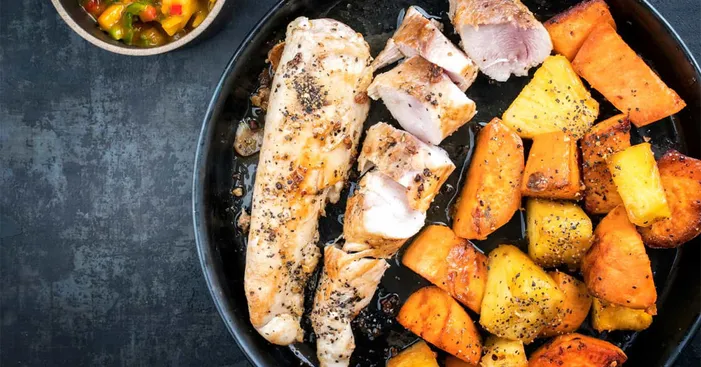
Alligator meat is a popular dish in many countries, including Australia, the USA, Thailand, South Africa, and the Philippines.
The tail section of the alligator is the most familiar part, and it has a mild flavor similar to chicken.
The legs, arms, and shoulders have a different flavor, which is often described as being gamey or musky.
Alligator meat can be cooked in a variety of ways, but it is important to cook it thoroughly to avoid food poisoning.
It is also a good idea to remove any fat from the outside of the meat before cooking.
Some people recommend marinating alligator meat for 6 hours before cooking to help tenderize it.
To preserve the nutritional value of alligator meat, it is best to cook it with as little oil as possible. Overcooking will dry out the meat and make it tough.
Alligator meat can be cooked in a variety of ways.
For a quick meal, you can fry it, sauté it, or grill it over high heat.
If you want to cook it slowly, you can simmer it in a soup or stew, or bake it in the oven.
For a crispy and flavorful dish, you can cut the meat into pieces, coat it in cornstarch and bread flour, and then deep-fry it.
Some people say that alligator meat tastes like fried chicken wings.
Alligator meat can also be used to make burgers, sausages, and other dishes.
In Thai cuisine, alligator meat is often stir-fried with basil.
Alligator meat in shells:
Ingredients:
- Alligator Fillet 500 g
- Lime 1 piece
- Olive oil 2 tablespoons
- Garlic 1 onion
- Grated ginger 1 tablespoon
- Red chili pepper 1 piece
- Lime zest 1 teaspoon
- Sweet chili sauce 100 ML
- Salt in taste
Preparation:
- Cut the alligator fillet into 2 cm cubes.
- Mix the meat with olive oil, half-lime juice, ginger, garlic, chili pepper, and pickle for 1 hour in the fridge.
- Soak the stumps in cold water for 20 minutes. Put the meat in the shells.
- Fry the meat on the grill until half cooked.
- Take half the chili sauce, evenly spread the sauce over the meat, and fry the kebabs until soft, keep on becoming (sweet sauce should soak the meat, not burn), and do not overcook.
- Combine the lime zest and half of the sweet chili pepper.
- Serve with lime juice and chili sauce.
Buying alligator meat:
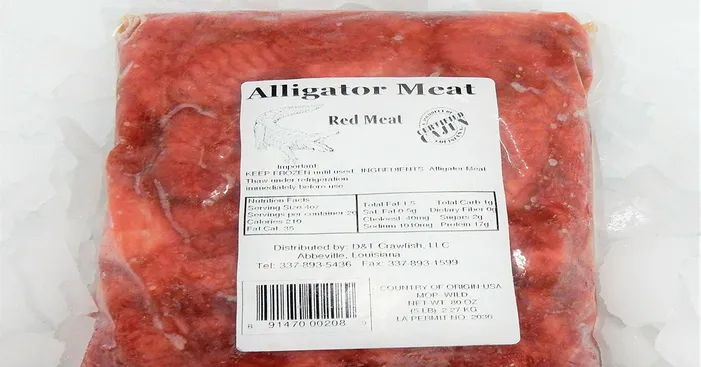
When selecting alligator meat, it is important to choose the best part of the animal.
The tail is considered the most tender and flavorful cut of meat, so look for meat from that section.
The meat should also be fresh, with a bright red color and no bad smells.
It is best to buy from a reliable source that you trust, as this will ensure that the meat is safe to eat and has been handled properly.
Storing alligator meat:
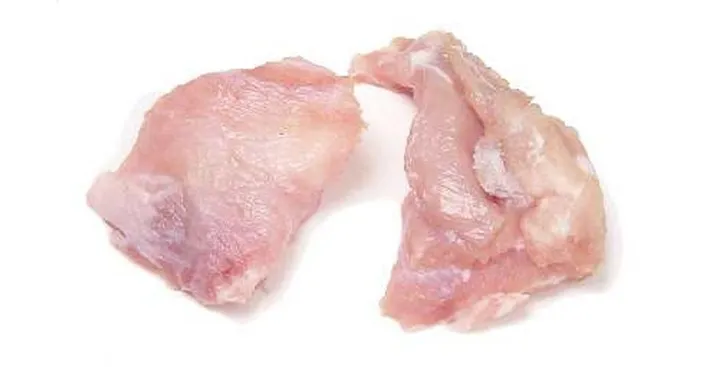
As with any type of meat, there are different ways to store alligator meat.
Refrigerator storage:
Keep the food in the refrigerator at a temperature of 5 to 0 degrees Celsius for up to 24 hours.
Freezer storage:
For shorter storage:
keep the food in the freezer at a temperature of -4 to 0 degrees Celsius for up to an additional period.
For longer storage:
Store the meat in the freezer at a temperature of -12 to -8 degrees Celsius for up to 2-4 months.
For the longest storage time:
You can also keep it in the freezer at a temperature of -24 to -18 degrees Celsius for up to 10-12 months.
Furthermore, the following tips can even extend the shelf life of alligator meat:
- Cut the meat into portions that you will use in one meal.
- Wrap the meat in aluminum foil, cling film or parchment paper.
- Place the wrapped meat in a sealed bag and put it in the refrigerator.
- Do not wash the meat before freezing, as this will shorten its shelf life.
- If you want to extend the shelf life of the meat by several days, wrap it in parchment paper coated with vegetable oil.
- Do not thaw frozen meat by dissolving it in boiling water. This will damage the meat and make it tough.

